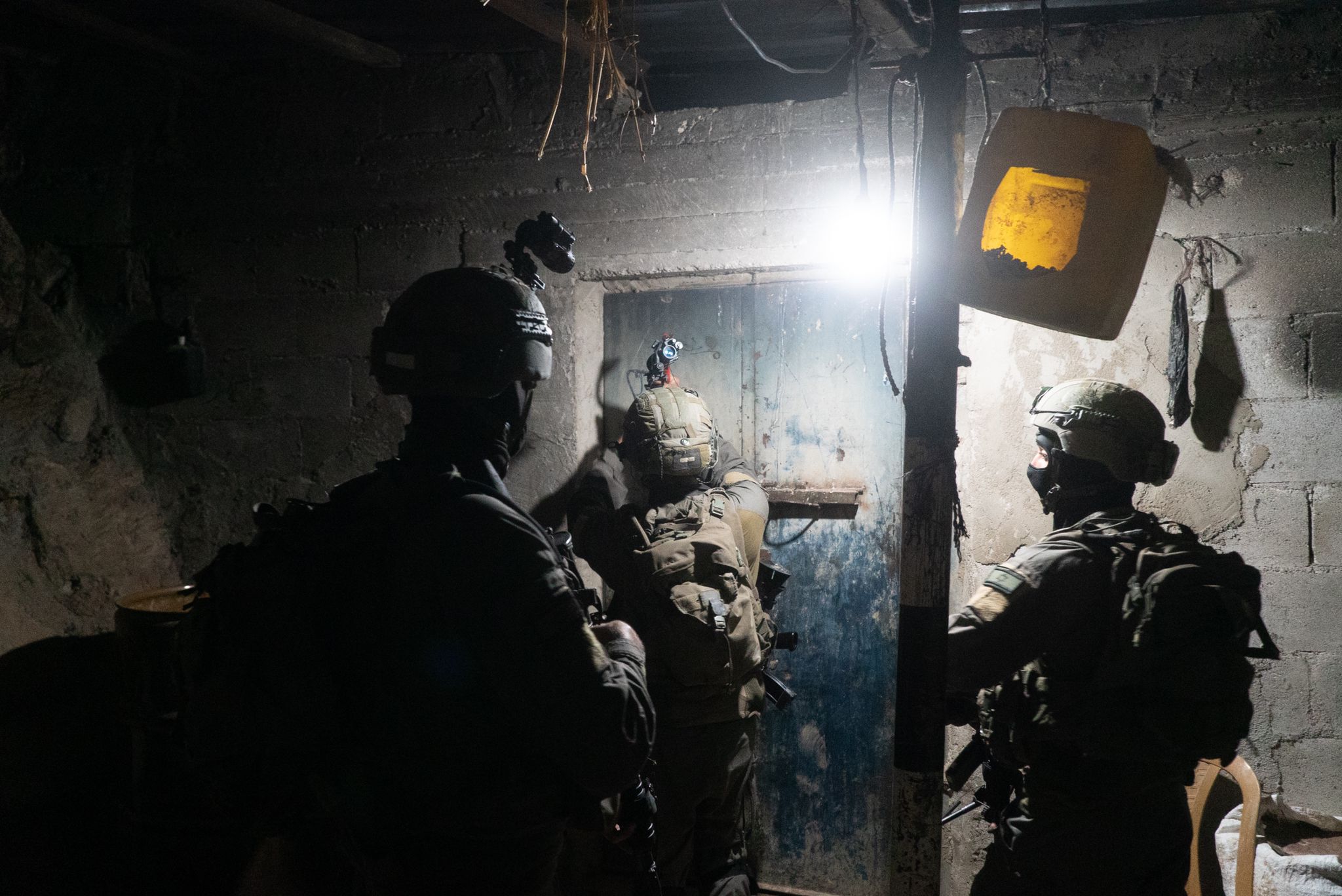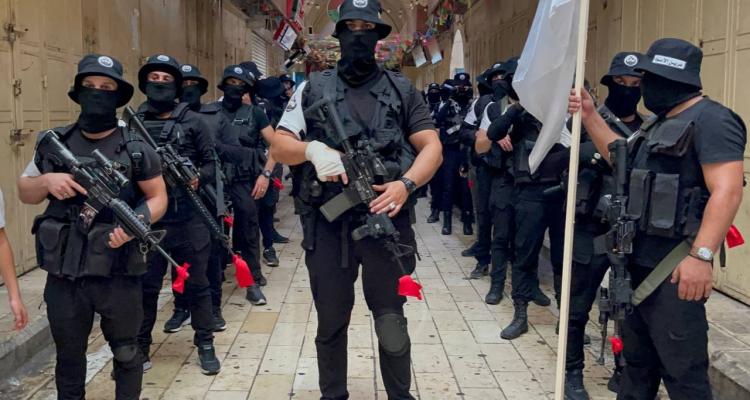Publications
INSS Insight No. 1651, October 19, 2022
The Lion’s Den phenomenon serves as both another signal to Israel that it will not be able to “contain” the Palestinian territories forever, and another expression of the weakening of the Palestinian Authority as the day after Abbas approaches. A number of scenarios could result from the current situation: (1) a sweeping grass-roots initiative that draws the Palestinian people into action that will change the leadership and the current rules of the game; (2) a takeover by Hamas of the situation’s dynamics, leading to increased terror and chaos in the West Bank; (3) international pressure on Israel to allow elections for the Palestinian Legislative Council and the Palestinian Authority presidency. A new military operation in the guise of Operation Defensive Shield II would accelerate the weakening of the PA, make it irrelevant to any political settlements, damage the little effectiveness that still remains in the activity of the Palestinian security apparatuses, and encourage the emergence of other groups of young Palestinians who are ready to fight Israel, while leading to the one of the said scenarios. Is the Israeli leadership – beyond party affiliations – thinking about this issue, and is it prepared to address it effectively?
Recent activity in the Nablus area is tied to an association of terror elements, including dozens of armed activists that are not affiliated with Hamas, Fatah/al-Aqsa Martyrs Brigades, or Islamic Jihad. Most of their members are young Palestinians – some former members of Fatah, Tanzim, Hamas, and Islamic Jihad – and some are sons of fathers serving in the Palestinian Authority security apparatuses. Most of the shooting incidents in the West Bank in recent weeks are attributed to this group, which is the main element responsible for the escalating terror in the area. September saw more than 34 shooting incidents in the West Bank – the highest number for over a decade – and they included firing from afar at settlements, shooting at vehicles on the roads, shooting at IDF positions and bases, and above all, live fire clashes with IDF forces operating in Palestinian cities and villages. Most of the organization’s activity is concentrated in the West Bank, although in at least one case a link was found with a terrorist who reached Jaffa, armed with an improvised weapon and explosive devices, and thanks to luck and alertness, was captured by the security forces before he could execute his plan.
The main motives driving the new organizational dynamic are developments on the ground – determined action by the IDF and the ISA in the northern West Bank in the framework of Operation Break the Wave; the weakness of the Palestinian Authority; and increasing internal struggles among the Palestinians as the day after Abbas approaches. These are compounded by the helplessness and lack of motivation on the part of the Palestinian security apparatuses to prevent attacks; the severe economic situation of young Palestinians who are not working in Israel; and the easy availability and wide distribution of weapons and ammunition. The group has branded itself the Lion’s Den (Arin al-Usud) and has adopted new symbols – a black uniform, a logo representing two crossed M-16 rifles above the Dome of the Rock, and red lapel ribbons (to indicate that unlike the security apparatuses, their weapons are not directed toward their own people). Their openly declared purpose – “Following in the footsteps of the martyrs” – is to confront IDF forces operating in Palestinian cities and villages, disrupt the lives of the settlement residents and their access to Joseph’s Tomb for prayer, and arouse the Palestinian public to a broad popular uprising.
The group is very active on social media, conducting campaigns particularly on Tik-Tok, as well as documenting clashes and posting videos on the networks in real time, calling on the Palestinian people to engage in the defense of al-Aqsa, and also calling for strikes and demonstrations against the PA. For example, the call on social media for a general strike, after the attack at the Shuafat refugee camp crossing, drew hundreds of activists from East Jerusalem to join violent outbursts in the streets, as well as strikes in most of the universities within the PA territory and a commercial strike in Palestinian cities. Although Lion’s Den is not affiliated with any of the existing organizations or movements, it is equipped with smuggled and locally produced weapons, and is apparently supported by funds from Hamas and Islamic Jihad.
More than ten Lion’s Den activists were killed in clashes with IDF forces, including Mohammad al-Azizi, originally a Fatah activist who became an independent operative and was the driving force behind the organization, together with Ibrahim al-Nabulsi. Al-Azizi was killed on July 24, 2022 in his family’s home. Al-Nabulsi was likewise subsequently killed, and responsibility for the group was assumed by Musab a-Shtayyeh, who was also wanted by the Palestinian Authority for receiving aid in the form of money and weapons from Hamas. On September 19 he was arrested by the PA apparatuses on charges of weapons possession, tax offenses, receipt of illegal payments, and damage to PA security. Despite the protests that erupted with his arrest, the PA continues to hold a-Shtayyeh. PA President Mahmoud Abbas, who still clings to his vision of “one authority, one weapon, and one law,” gave instructions to dismantle Lion’s Den, apparently using the familiar method of incorporating its activists into the PA mechanisms. At least 20 members of the group or their family members are being held by the PA and subject to efforts to persuade them to abandon the group and accept jobs in the PA or its apparatuses, with promises of immunity from Israeli arrest.
Where is All this Going?
The Lion’s Den group is a kind of young militant revolutionary stream, which is opposed to the political line of President Abbas, particularly the security coordination with Israel and the corrupt government of the Palestinian Authority. At present the group is focused on clashes with the IDF and the settlement population, but it could later present clear opposition to the PA leadership. The group also commands support among the ranks of Fatah, particularly with those who are opposed to President Abbas and his allies, Hussein al-Sheikh and Majid Faraj. Therefore, it is hard to state unequivocally that the Lion’s Den group is an isolated organization that will soon disintegrate. It could be the first sign of a string of local independent groups of terrorists, not allied with any organization, that will emerge and operate in the West Bank and East Jerusalem, where groups of young Palestinians are already active, monitoring al-Aqsa but also whipping up violence in Arab neighborhoods – as occurred during the week of Sukkot.
For Israel it is convenient to work with the Palestinian Authority in its current format – and the internal Palestinian political differentiation helps perpetuate this approach – largely because the main responsibility for managing the lives of the Palestinian population does not fall on Israeli shoulders. In addition, it gives Israel freedom of military/security operations in the PA territories. Most of the Israeli public support the view that there is no Palestinian partner to a political program working toward an arrangement, and that “we will always live by the sword.” The Palestinian public also lives with the pervasive feeling that there is no way out, no way of ensuring a better national future, and no credible leadership. This creates a vacuum that breeds groups of militant Palestinian youths who are able to attract other young people to join them. Their purpose is to fight the occupation, with an attempt to ignite a popular protest. Not only are these young groups exacting a price by attacking Israeli soldiers and citizen, but they are also further weakening the Palestinian Authority and undermining its ability to impose law and order and stability in its territories.

In an interview with Ynet on October 13, after the serious violent incidents, Defense Minister Benny Gantz said that “this is a very sensitive time,” but insisted that Israel hasn’t “lost control…We are using all the means at our disposal and gaining the upper hand where possible. We are conducting offensive actions in Nablus, Jenin, and wherever necessary.” He added: “Ultimately we will get hold of these terrorists. We’re talking of a group of about 30 activists. We have to know how to harm them, and we will strike at them. This gang will come to an end one way or another and I hope it will be as soon as possible.” In tandem, permits to enter Israel were withdrawn from 164 family members of Lion’s Den activists, according to a report from the Coordinator of Government Activities in the Territories.
There are some in Israel who believe that this is the time for Operation Defensive Shield II. But what would be the purpose of such an operation, if Israel has no political objective that it seeks to advance? What is the meaning of supporting the idea of two states as declared by Prime Minister Yair Lapid from the podium at the United Nations, without actions in the same spirit? It is not possible to decide ethnic, religious, and national aspirations by force alone. So far, the only achievement for Israel is the absence of motivation among the Palestinian public to enlist in a violent, escalating, and broad-based popular struggle. The Palestinian public is tired of the PA leadership and disillusioned by it, and even if they see the very existence of PA institutions as an important national achievement, they long for real change in the leadership and its conduct.
The Lion’s Den is another signal to Israel that it will not be able to “contain” the Palestinian territories forever, and a further stage in the weakening of the Palestinian Authority as the day after Abbas approaches. A number of scenarios could result from the current situation: (1) a sweeping grass-roots initiative that draws public support for action that will change the leadership and the current rules of the game; (2) a takeover by Hamas of the situation’s dynamics, leading to increased terror and chaos in the West Bank; (3) international pressure on Israel to allow elections for the Palestinian Legislative Council and the Palestinian Authority presidency as the only way to preserve the PA. A second Operation Defensive Shield will accelerate the weakening of the PA, make it irrelevant to any political settlements, damage the little effectiveness that still remains in the action of the Palestinian security apparatuses, encourage the emergence of other groups of young Palestinians who are ready to sacrifice themselves in the fight against Israel, while leading to one of the scenarios described. Is Israel – the public and the leadership, beyond party affiliations – ready for this, and even thinking about this issue?



